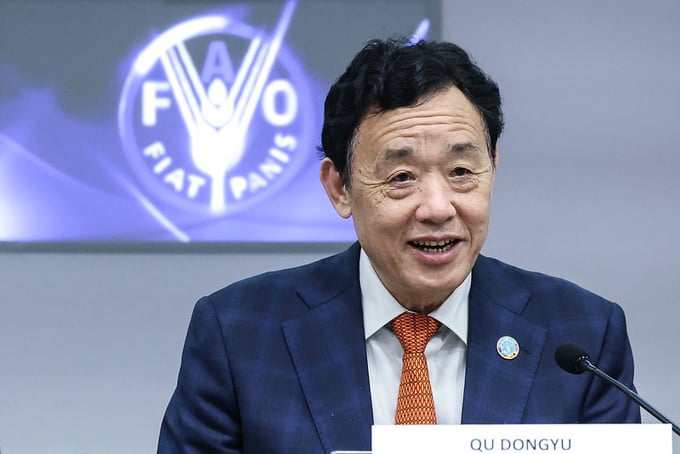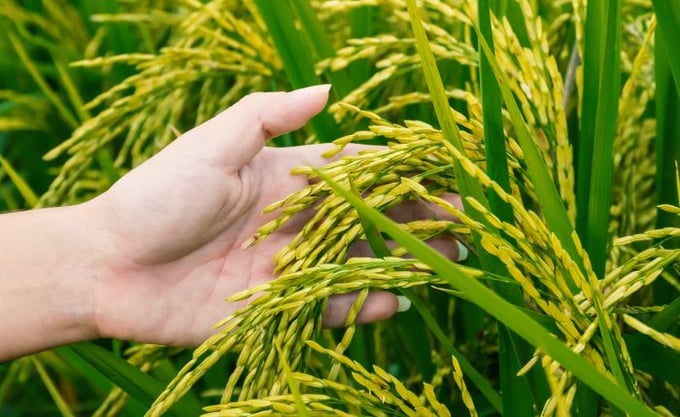November 27, 2025 | 17:41 GMT +7
November 27, 2025 | 17:41 GMT +7
Hotline: 0913.378.918
November 27, 2025 | 17:41 GMT +7
Hotline: 0913.378.918
We all know that we live in a changing world. In the vast area of Asia and the Pacific that change is most evident. Over the past 20 years, the economies of many nations in the region have been moving out of the category of ‘least developed’ and graduating into a ‘middle income’ status. However, the positive changes that help to make our lives better, healthier, and more prosperous, are not happening at the same time equally across all countries, or even equitably within them.
On the one hand, Asia and the Pacific is now home to three of the world’s five largest economies. These and other countries in the region help to feed much of the rest of the world – the majority of aquaculture, rice production and the rapidly growing protein sector is found here.
On the other hand, hunger is still widespread in some parts of the region – indeed more than 371 million are undernourished in Asia and the Pacific – or half the world’s total. Nearly two billion people cannot afford a healthy diet. Despite considerable progress, poverty remains a problem for many families. Meantime, inequalities persist among and within countries, between men and women and for youth, and indigenous peoples, and between cities and rural areas.

Dr. QU Dongyu, Director-General, Food and Agriculture Organization of the United Nations (FAO).
To address these challenges, FAO is increasingly striving to leverage science and innovation, including new technologies – especially digital solutions – developed in both the public and private sectors, particularly through four regional priorities designed to deliver the Four Betters (Better Production, Better Nutrition, a Better Environment, and a Better Life, leaving no one behind).
The first FAO Asia-Pacific regional priority is to transform the region’s agrifood systems to be more efficient, more inclusive, more resilient, and more sustainable, with more affordable healthy diets. Increasing agricultural production is paramount for food and nutrient security, but it needs to happen in a climate-friendly process. To that end, we are supporting countries to bolster climate - adaptation and resilience, low-carbon agriculture, modernize seed systems, implement integrated farming management, control trans-boundary pests and diseases, disseminate good agriculture practices (GAP) and transfer technologies to smallholders and family farmers. We are also promoting increasing digitalization and mechanization among local communities.
The second regional priority is to accelerate sustainable natural resources management for biodiversity conservation and climate action. FAO is leading the development of a new generation of analysis and tools to support the design and improved targeting of investments in agrifood systems. In Asia and the Pacific, we are supporting countries to strategize and develop proposals to access climate finance and to achieve their climate ambitions in agrifood systems and rural development.
The third priority is to support inclusive rural transformation for equitable rural societies through economic growth, job creation and assistance for the vulnerable populations to reduce inequality, leaving no country and no person behind. FAO’s The 1000 Digital Villages Initiative, the Hand-in-Hand Initiative and the One Country One Priority Product Initiative promote sustainable livelihoods and decent incomes in the Asia-Pacific region, while encouraging the wide participation of women and youth in agrifood systems transformation.
The fourth priority aims to achieve the above in the unique context of the region’s Small Island Developing States (SIDS). At FAO, we are working with the SIDS to implement anticipatory actions against multiple hazards and risks, while initiating a process leading to the formulation of the Pacific Action Plan on Mainstreaming Biodiversity across Agricultural Sectors (2024–2030). This Plan is critical for bringing sustainability and resilience to agriculture and natural resources such as soil and water.
In working on these priorities, we are speeding up and scaling up tangible and accountable results on the ground through the implementation of the FAO Strategic Framework 2022-2031 and relevant strategies.

The first FAO Asia-Pacific regional priority is to transform the region’s agrifood systems to be more efficient, more inclusive, more resilient, and more sustainable, with more affordable healthy diets.
In Asia and the Pacific, we are also assisting countries to promote tailored investment plans for poverty reduction including social protection; fighting food loss and waste and conserving water; and building adaptive capacities in response to country and regional needs.
Meantime, we continue to scale up South-South and Triangular Cooperation and expand partnerships and strategic alliances with a wide range of players, including International Financial Institutions (IFIs), the private sector, regional institutions bodies, civil society, and others. Through these partnerships, we aim to bridge investment and financing gaps to ensure that financing reaches those who need it most, especially smallholder and family farmers.
These advances and more will form the basis of much of the discussion at the upcoming 37th Session of the FAO Regional Ministerial Conference for Asia and the Pacific (19-22 February), which is gathering Government Ministers from FAO’s Members from the region in Colombo, Sri Lanka.
The changes we still need are many. But, together, with strong political will and commitment, and with enabling policies, sufficient investment and innovative business models, this region can be an agent of the changes needed - and continue to inspire the world.
Director-General, Food and Agriculture Organization of the United Nations (FAO)
/2025/11/27/4910-4-164708_294.jpg)
(VAN) On the afternoon of November 27 in Beijing, Minister of Agriculture and Environment Tran Duc Thang held a working session with several major Chinese enterprises operating in the agriculture and environment sector.

(VAN) The Department of Animal Health issued a provisional guideline requesting local authorities to increase surveillance, collect samples for testing, and conduct epidemiological investigations according to the established procedure.

(VAN) The United Nations recommends that Vietnam utilize data and artificial intelligence to enhance early disaster warnings and reduce GDP losses by 3.2% in the context of climate change.

(VAN) On the morning of November 27 in Beijing, Minister Tran Duc Thang and the Deputy Commissioner General of the General Administration of Customs of China signed a protocol on fresh jackfruit exports.

(VAN) As floodwaters recede, a vast network of irrigation works across eastern Gia Lai is emerging in a state of severe disrepair, with extensive damage demanding urgent restoration ahead of the 2025-2026 winter-spring cropping season.

(VAN) The conference reviewing three years of implementing Decision 911 identified the need to prioritize improving marine environmental quality and promoting sustainable fisheries development.

(VAN) Le Hoai Trung, Member of the Communist Party of Viet Nam Central Committee and Minister of Foreign Affairs, held talks with Vi Thao, Chairman of the Guangxi Zhuang Autonomous Region (China) this week.